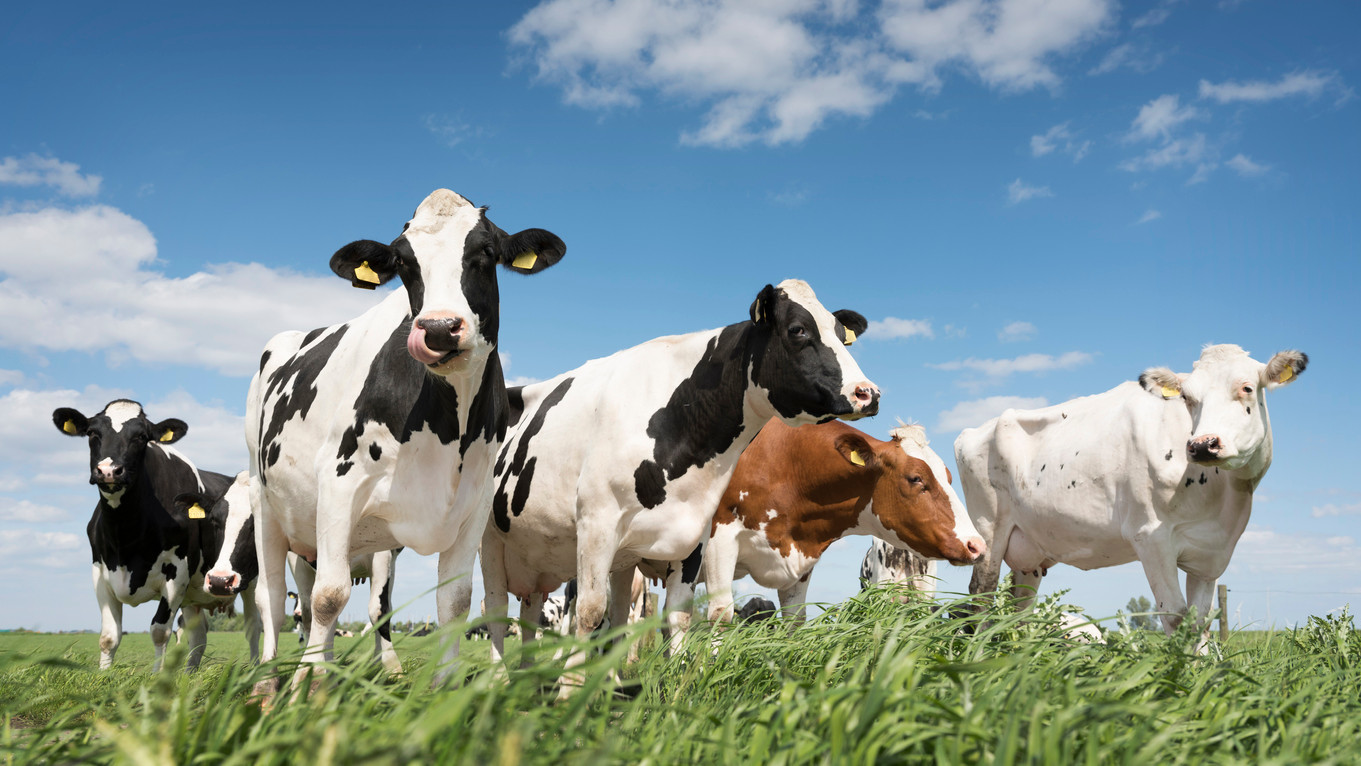Ireland's METHLAB Will Protect Us From Cows Breaking Bad, Er, Wind
Since the beginning of time, man has feared the apocalypse. Assyrians wrote in 2800 B.C.E. that "bribery and corruption are common; children no longer obey their parents; every man wants to write a book and the end of the world is evidently approaching." We have feared comets and asteroids, alien invaders and radioactive monsters, the wrath of god, Y2K and, of course, robots. While our eyes were pointed to the heavens and our imaginations ran wild, the one of the greatest threats to the future of all mankind has been walking beside us all along, silent... and deadly.
The raising of livestock is directly responsible for around a quarter of global warming since the beginning of the industrial age; 65% of that comes from cattle, which produce beef, milk, and farts. Lots and lots of farts full of methane, a greenhouse gas 34 times stronger than carbon dioxide . Even worse that the farts are the burps, which is something that cattle just can't stop doing: their digestive process involves a stomach bacteria to ferment their natural diet of grassed and rough plant matter, and livestock feed made from corn and soy makes them even gassier. While many have suggested that, to curb—ahem—emissions, humans should drastically reduce their consumption of meat and dairy, averting a climate disaster could mean, for some countries, an economic disaster.
In Ireland—where 10% of the labor force works in agriculture, and 61% of output is beef and dairy—the dairy business is booming. Since 2015, the country's already robust cattle population has increased by nearly 50%, with close to 1/4 million dairy cows currently chomping away at the grasses of the Emerald Isle. As the production of dairy products has boomed, so has the cows' production of their own special brand of booms, and neither the dairy industry nor the cows shows any sign of slowing growth. In response, Ireland—a highly responsible country which understands that climate change is absolutely not a hoax—has assembled an elite team of top scientists to tackle the issue with the goal of reducing agricultural emissions by 10-15% over the next decade: METHLAB.
METHLAB's current project is to improve upon the lactic acid bacteria supplements that are already commonly used in the agricultural industry, which are given to cows increase milk production; METHLAB's supplements are being formulated to interfere with the methane-producing bacteria found in the first of cows' four stomachs. A recent breakthrough is currently in the manufacturing stage, with a trial set to begin at some point this year: cows will be fed the new and improved bacterial supplement, and a specially designed canister will be strapped to their backs to monitor the methane levels in their toots and poots.
Another strategy, reported by the Irish Times, is to selectively breed cows with natural, shall we say, low emissions standards. To do this, cows would need to be individually evaluated for their farting abilities, a process that scientists admit is very labor intensive and, we're guessing, not exactly a job that people are lining up to do in Ireland's growing economy. Still, it's an option on the table, as the Times reports that around 13% of the differences in how much methane a cow produces is a result of its genetics.
Will METHLAB's mission to save humanity succeed? Will they manage to finally clear the air and let us lead lives where they only dairy farts we must worry about are the ones from the lactose-intolerant? As always, the answer, my friends, is blowing in the wind.
